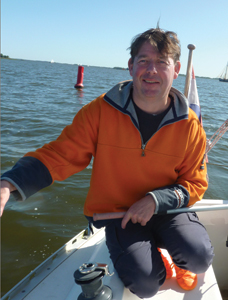 Are the big oil giants sincere or greenwashing?
Are the big oil giants sincere or greenwashing?According to Eurelectric’s Power Barometer the carbon dioxide emissions from the power sector are decreasing faster than anticipated. Renewables dominate the generation mix, while our reliance on polluting fossil-based generation continues to drop. Eurelectric’s Power Barometer, a set of key industry indicators, reflects a historic development in the power sector and points to the challenges ahead of achieving a climate neutral European economy by 2050.
The decarbonisation of the power sector is on fast forward. Two-thirds of electricity generated in the first half of 2020 was carbon-free. Renewables covered 40% of the mix, while fossil fuel generation dropped by 18%. A sharp upward trend is visible: in 2010 renewables accounted for 20% of the European Union’s electricity mix, while in 2019, they had already reached 34%.
What part will the traditional oil and gas companies play in this decarbonisation of the power sector? Utility companies like Ørsted, EDF and Vattenfall have already bet big on renewables and it looks like the oil companies will follow. Equinor (previously Statoil) is already operating and developing several offshore wind farms in Europe, the USA, South Korea and Japan, and the company expects to increase its installed renewables capacity to 12 to 16GW by 2035.
Recently BP announced a new strategic partnership with Equinor to develop offshore wind assets in the US market and to jointly pursue further offshore wind opportunities in the country. The announcement marks BP’s first venture into offshore wind. The move comes a month after BP announced a new strategy, which includes the aim to increase annual low carbon investment 10-fold to around US$ 5 billion a year by 2030 and to grow developed renewable generating capacity from 2.5GW in 2019 to around 50GW by 2030.
EDF Renewables North America and Shell New Energies US have announced that they have formed a 50/50 joint venture, Atlantic Shores Offshore Wind, to co-develop an offshore wind farm within the New Jersey Wind Energy Area. Besides teaming up with EDF, Shell has also signed a joint development agreement with CoensHexicon South Korea to develop floating wind in South Korea. Further, in 2019 Shell bought Eolfi, a French renewable energy developer specialising in floating wind projects and a wholly-owned and fully integrated subsidiary of Shell.
Another oil giant, Total, has also moved into the offshore wind market. Total has signed an agreement with the developer Simply Blue Energy to acquire an 80% stake in the 96MW floating wind project Erebus located in the Welsh Celtic Sea, and the company has entered into an agreement with SSE Renewables to acquire a 51% stake in the 1,140MW Seagreen 1 offshore wind farm. Further, Total and Macquarie’s Green Investment Group have concluded a 50/50 partnership to develop a portfolio of five floating offshore wind projects in South Korea with a potential cumulated capacity of more than 2GW.
On the other hand, in 2013 BP announced plans to sell its US wind energy portfolio and focus on oil and natural gas developments. At that time the company wanted to sell its stake in 16 wind farms in operation in nine US states. Those wind farms, combined with projects under development, accounted for about 4,600MW of wind energy capacity. Also, Shell has been active before in offshore wind energy but in 2008 E.ON and DONG Energy (now Ørsted) bought out Shell’s stake in the London Array offshore wind farm and Shell stopped all activities related to (offshore) wind energy.
The big question is thus, are the oil giants greenwashing their image or do they sincerely believe in the energy transition and want to be a part of it? Since the levelised cost of (offshore) wind energy is dropping continuously making renewables a viable business case I bet (and hope) the latter but only time will tell.
Enjoy reading,
Floris Siteur
Publisher
Publisher
